US charges a reflection of 'anxiety'
Updated: 2015-05-25 07:37
By ZHAO LEI(China Daily)
|
||||||||
Chinese-born physicist accused of trying to sell technological secrets
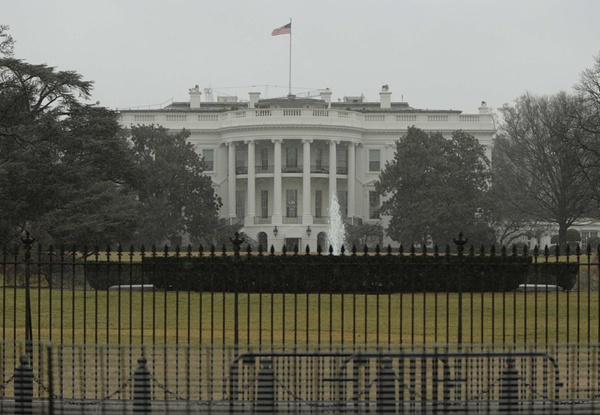 |
|
The White House in file photo. [Photo/CFP] |
Recent accusations against scientists and researchers with Chinese background show the United States' concern and anxiety over China's rising technological capability, experts said.
"I don't know whether the US prosecutors' charges are grounded in fact or not, but the recent cases actually show that the US government has growing apprehension about China's development in science and technology," Tao Wenzhao, a senior researcher at the Institute of American Studies of the Chinese Academy of Social Sciences, told China Daily on Sunday.
"Such a notion has repeatedly appeared in President Barack Obama's State of the Union addresses and US government departments' reports, highlighting the possibility that China will surpass the US in science and technology," he said.
 |
|
Xi Xiaoxing, naturalized US citizen charged in wire fraud scheme [Photo/CHINA DAILY] |
"The Americans know exactly how their political and military superiority in the world is based on economic ascendancy, which relies heavily on the nation's leadership in science and technology, so they have spared no effort to make sure such leadership will continue to belong to the US."
Some people in the US have become convinced that the rise of China would pose a severe challenge to US global leadership, Tao said.
His remarks came after the US Justice Department accused a distinguished physicist of transferring technological secrets to China for personal gain.
Xi Xiaoxing, 47, a naturalized US citizen who was born in China, appeared in a federal court in Philadelphia on Thursday on four counts of wire fraud. Prosecutors at the US Attorney's Office in Eastern District of Pennsylvania said Xi, who was chairman of Temple University's physics department before the case, planned to provide a cutting-edge magnesium diboride thin film superconducting technology to China in exchange for "lucrative and prestigious appointments" for himself in China.
He was released on a $100,000 bond, facing a possible 80 years in prison and a $1 million fine if convicted, according to a US Justice Department news release. The case was investigated by the country's Federal Bureau of Investigation.
The Chinese Foreign Ministry could not be reached for comment on Sunday.
Also last week, US prosecutors accused six Chinese nationals, including three teachers from Tianjin University, of economic espionage and theft of trade secrets.
In response, Foreign Ministry spokesman Hong Lei said on Wednesday that China "is seeking further details and will work to safeguard the rights and interests of its nationals".
Jin Canrong, deputy dean at the School of International Studies at Renmin University of China, said US strategic suspicion toward China is continuing to grow while uncertainty over China's development is spreading among policymakers in Washington.
"As far as I know, most US policymakers believe that China's economy is likely to overcome that of the US in the future with some of them being afraid of China's rise. Sometimes, strategic suspicion can lead to strategic confrontation," he said.
- Fourth generation of 'face-kini' soon to hit beach in Qingdao
- Tibetan town captures photos of their 'panda deity'
- 600 arrested in Beijing's vice crackdown
- Building collapse in Guizhou caused by landslide: govt
- Xi welcomes Japan delegation but warns against historical distortion
- Chinese Vice-Premier stresses flood control
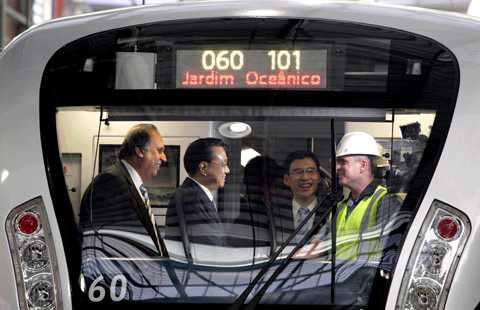
 Smiles win Friends from afar
Smiles win Friends from afar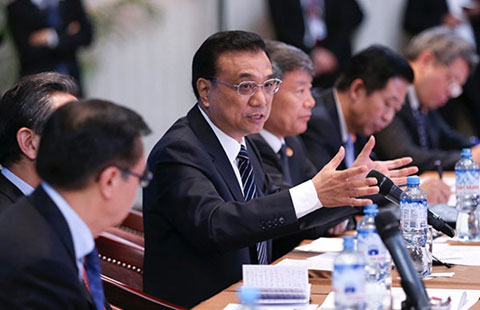
 Premier talks with Chinese entrepreneurs in Peru
Premier talks with Chinese entrepreneurs in Peru
 Tourists enjoy themselves at Mingsha Hill desert
Tourists enjoy themselves at Mingsha Hill desert
 Colombia: A birdwatcher's paradise
Colombia: A birdwatcher's paradise
 Journey of a migrant girl from village to ad world
Journey of a migrant girl from village to ad world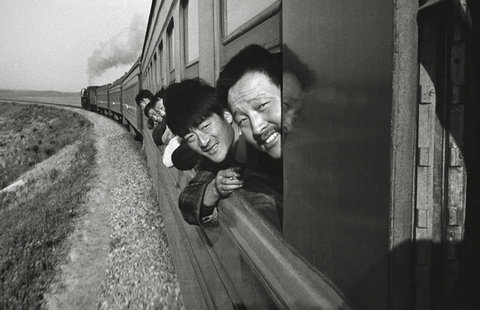
 Photographer captures Chinese on the train
Photographer captures Chinese on the train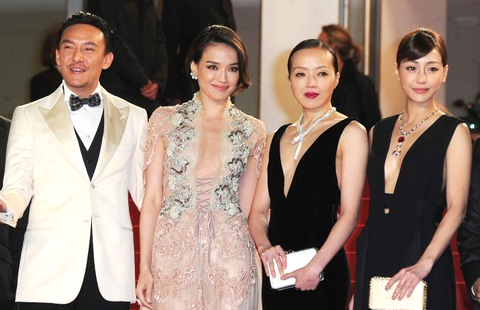
 Hou Hsiao-Hsien's The Assassin premieres in Cannes
Hou Hsiao-Hsien's The Assassin premieres in Cannes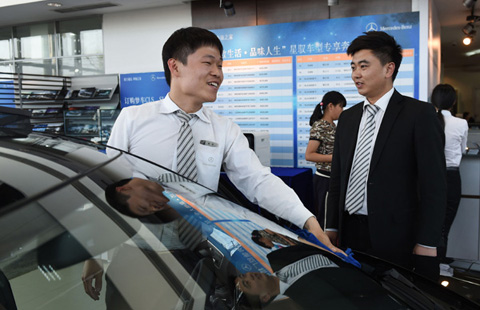
 Top 10 highest-paid white-collar jobs in China
Top 10 highest-paid white-collar jobs in China
Most Viewed
Editor's Picks

|

|

|

|

|

|
Today's Top News
Chinese premier arrives in Chile for official visit
John Nash: A life of great struggle and even greater success
Cleveland police say 71 people arrested overnight in protests
US charges a reflection of 'anxiety'
Expansion of free trade possible on Chile visit
Chilean president sees promising prospects for relations with China
Mathematician John Nash killed in car crash
Chinese premier encourages firms to upgrade cooperation with Peru
US Weekly

|

|






